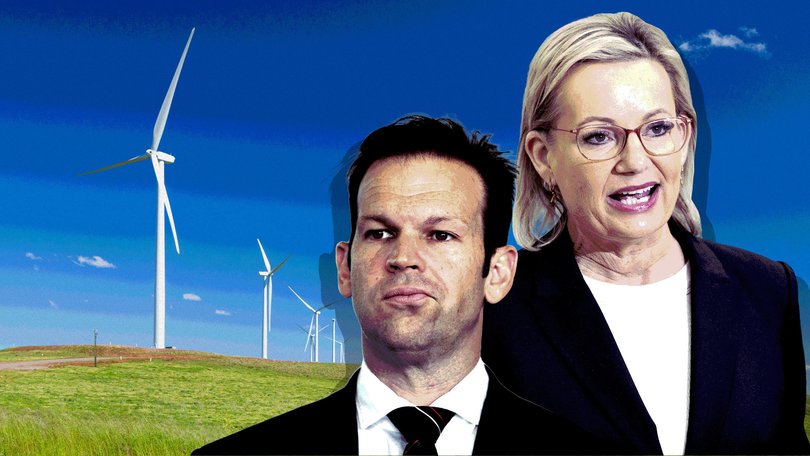AARON PATRICK: The Coalition could consume itself over the net zero climate change target
AARON PATRICK: The emissions target is not just about climate change policy. It is a fight over the Coalition’s ideological path, internal power and its place in society.

The Senate revolt on Monday was minor - little more than a skirmish - but it was fought over a question of such profound ideological, geographical and political potency that it risks consuming what is left of the federal Coalition.
Late afternoon Coalition senators Matthew Canavan and Alex Antic sided with One Nation founder Pauline Hanson to demand the Government drop the plan to eliminate Greenhouse gas emissions, on a net basis, by 2050. Senator Hanson had decided to join a campaign by Coalition’s conservative wing - disenfranchised and emboldened by Sussan’s Ley elevation to leadership - against the policy.
Almost all Liberal and National senators refused to support the protest, and did not turn up for the vote, which was defeated 39 to seven. But the short debate over Senator Hanson’s one-paragraph motion demonstrated the climate sceptics’ determination to force a new discussion on a position the Coalition had seemed to settle in 2021, when Prime Minister Scott Morrison went to a Glasgow climate conference and promised to “achieve our targets in the Australian way”.
Sign up to The Nightly's newsletters.
Get the first look at the digital newspaper, curated daily stories and breaking headlines delivered to your inbox.
By continuing you agree to our Terms and Privacy Policy.In the other chamber, hours earlier, former Nationals leader Barnaby Joyce tabled a draft law that would cancel the net zero commitment.
‘No longer an aspiration’
Done without Coalition support, Mr Joyce’s Bill formalises the split between country-based conservatives who see carbon policies wrecking the economy and urban-focused Liberals (and some Nationals) fearing the extinction of the Coalition’s already-limited city representation.
“Over and over again now, the electorate has told us that they want to see a net zero energy future,” a Victorian Liberal senator, Jane Hume, told Sky News last week. “They want to see emissions down. That’s what successive elections have told us.”
The Bill contains a long list of complaints about the policy, and argues: “Australia has jumped headlong into a blind restructure of our economic base to favour white collar jobs which are at threat with the progression of AI which will be a massive disruption to these careers.”
Net zero is no longer an aspiration. It has been baked into the economy with inter-locking subsidies, complex regulations and a big-project carbon trading system.
The two Coalition leaders, Mr Ley and David Littleproud, have not committed either way.
At the same time, neither is actively fighting the rebellion in their ranks, well aware of the danger of escalation. Liberal party divisions in South Australia and Western Australia (and the Country Liberal Party in the Northern Territory) oppose emissions-reduction targets too.
Net Zero is not just about climate change policy. It is a fight over the Coalition’s ideological path, internal power and its place in society.
May’s devastating election defeat has created structural instability. Ms Ley wants to tack left, but the conservative faction likely represents a majority of Liberal MPs. Mr Littleproud has two former Nationals leaders on his backbench, both eager for relevance.
The Nationals have already demonstrated they are reluctant coalitionists. Climate change could split the two parties once again, if it does not split the Liberals first.

